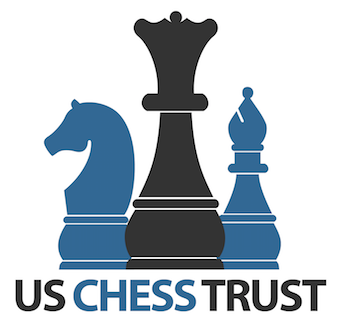Elizabeth Vicary Interview by Beatriz Marinello
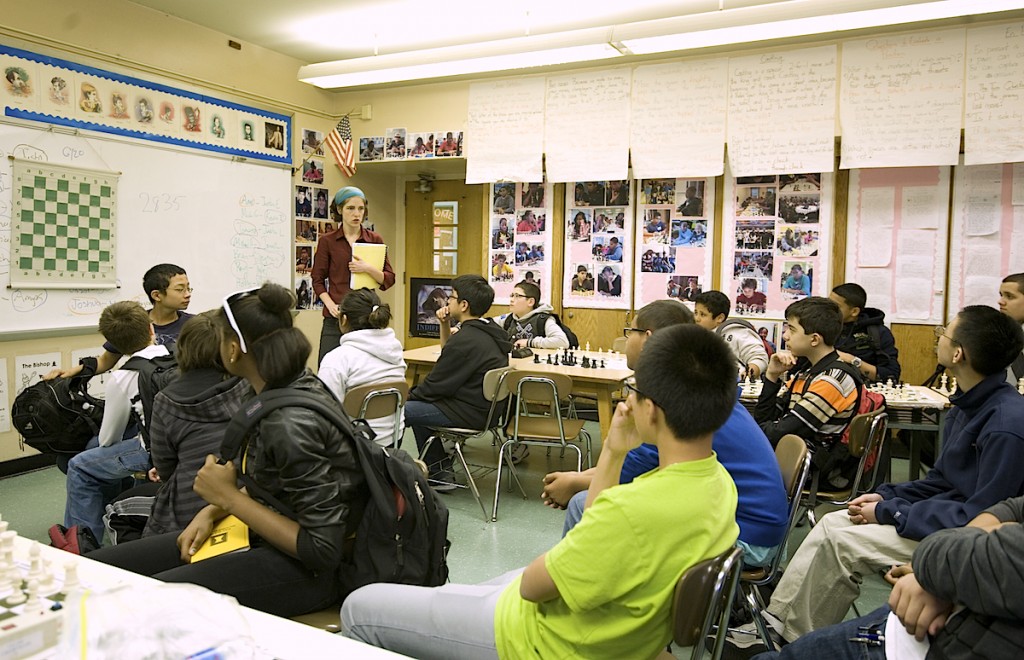
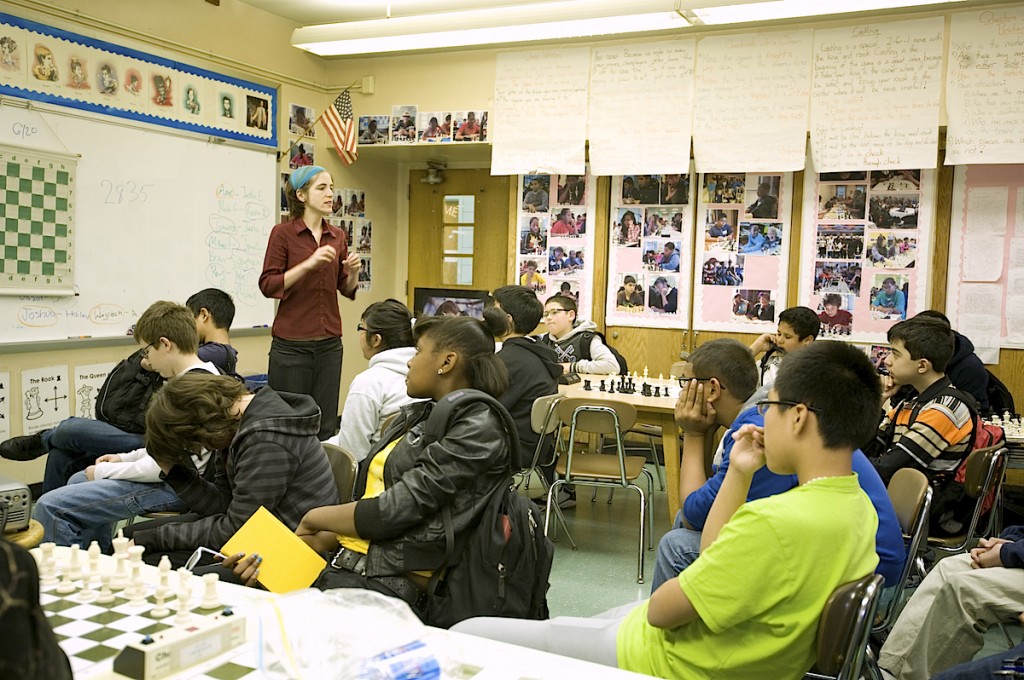
Brooklyn Castle – The Film
Brooklyn Castle – The Film is a documentary that follows five chess team members from I.S. 318 for one year, and documents their challenges and triumphs both on and off the chessboard.
I.S. 318 has been consistenly winning National Championships, positioning itself as one of the strongest chess teams in the country. You may be wondering what the secret of their success is. Searching for that answer we visited I.S. 318 to try to understand what makes this school a success at chess.
What we found was chess – chess everywhere!
When we first arrive at I.S. 318, the first thing we notice as we enter are the chess trophies, plaques, articles and chess photos that grace the walls of a school that so evidently supports these young chess players. Chess is so embedded in this school’s culture that it wouldn’t come as a surprise if they made the Chess King the school’s mascot.
Beatriz Marinello visits the school and sits for a chat with Elizabeth Vicary , the chess teacher that leads these talented young players to victory.
With the release of the new film, we are reminded yet again of the difference chess can make in communities across the globe. The United States has long been a leader in scholastic chess.
The film opens on June 1st in Brooklyn, New York to a sold-out crowd. Tickets have been sold out for weeks, which proves that New York continues to be the chess capital of the United States. For information about the film and the schedule for it’s screenings, please visit the official website at: www.brooklyncastle.com
Elizabeth Vicary Interview by Beatriz Marinello
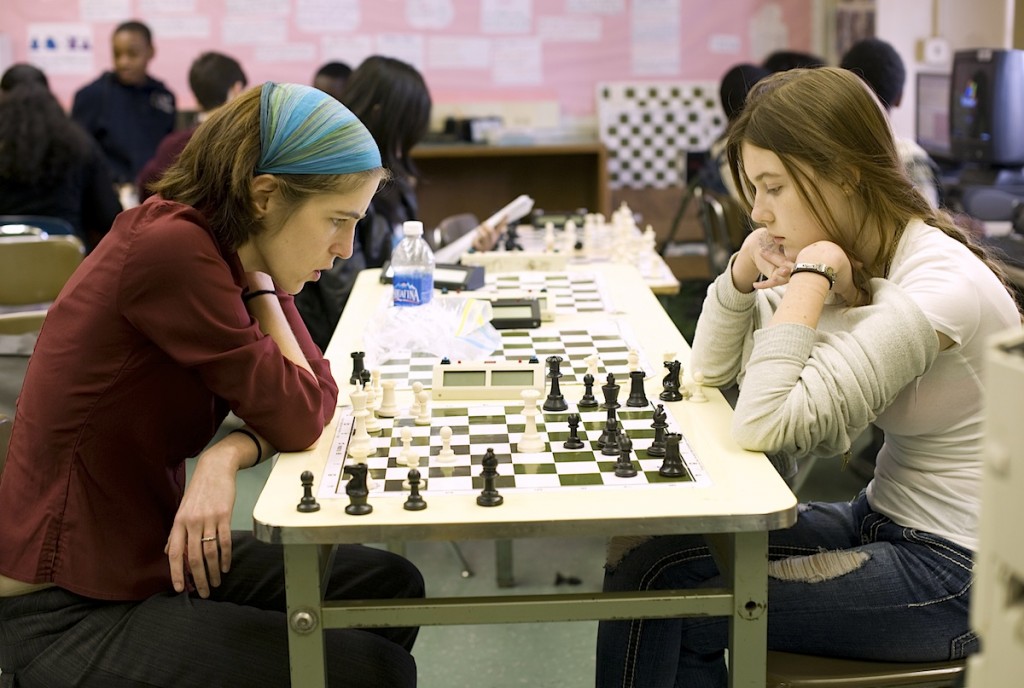
Beatriz Marinello: You have about 1700 students in this school right?
Elizabeth Vicary: Yes.
BM: How many are actually exposed to chess?
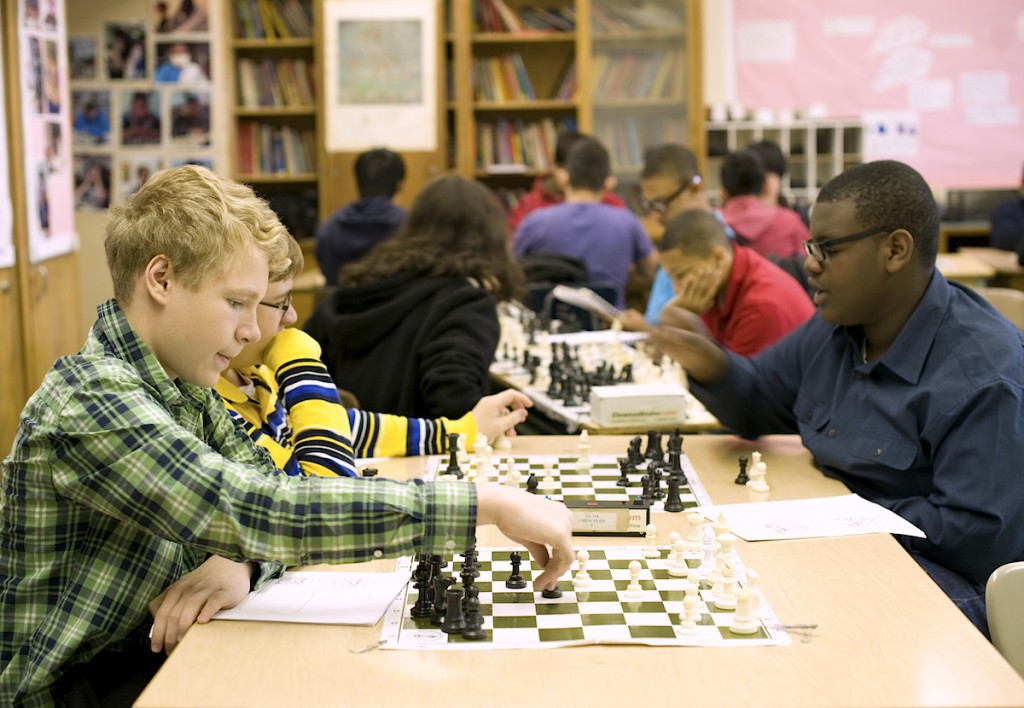
EV: Well, Mitch Fitzko, who is our ‘Chess in the Schools’ instructor comes on Wednesdays and he teaches the kids how the pieces move, what a checkmate is, how to castle, etc. He teaches five 6th Grade classes in the Spring and five in the Fall. Which means that, a little over half of the school gets an introductory chess class. Some of the kids already know how to play chess because they had it in Elementary School, or because their brothers or sisters know how to play. This means that maybe 70% of the kids in the school know how to play chess. If they like chess and they want to be in my classes they can.
BM: If they decide to continue they can then take a master class with you? How do you call these classes?
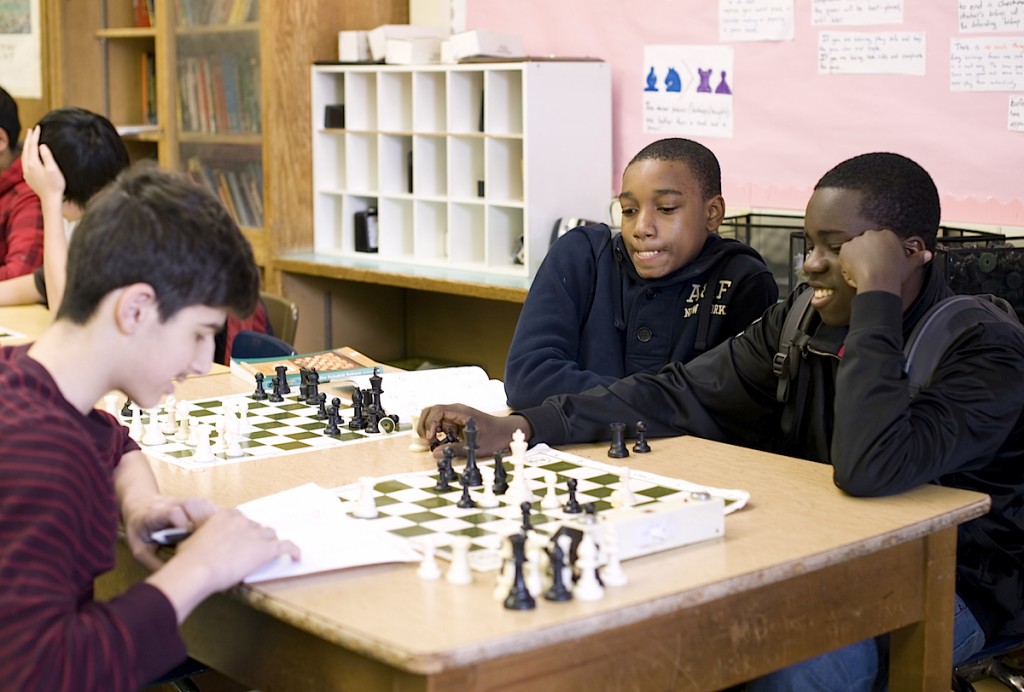
EV: Yes, they are called ‘Shop Classes’, it’s a school term. A shop class can be a cooking class, botany, computers, band, movie club….
BM: How many classes do you have every day? Do you have a regular schedule?
EV: Yeah. On average, five classes a day. Some are six to eight and some are four. But, the normal is five.
BM: In addition, you have the after-school program and the tournaments. That’s a lot of work.
EV: I think with teaching you can do as much or as little as you want. My job could be very easy if I just ran blitz tournaments.
BM: Yeah, but we love chess, we want to do more! How many students are actually exposed to your ‘Chess Shop’?
EV: I have nine different classes and then some overlap.
BM: There are about 20 students in each class?
EV: It varies a lot. The 6th Grade classes tend to be larger and as the Grades go up they tend to get smaller. So by the time it’s in 8th Grade maybe it’s 20 but then it’s 23 to 35.
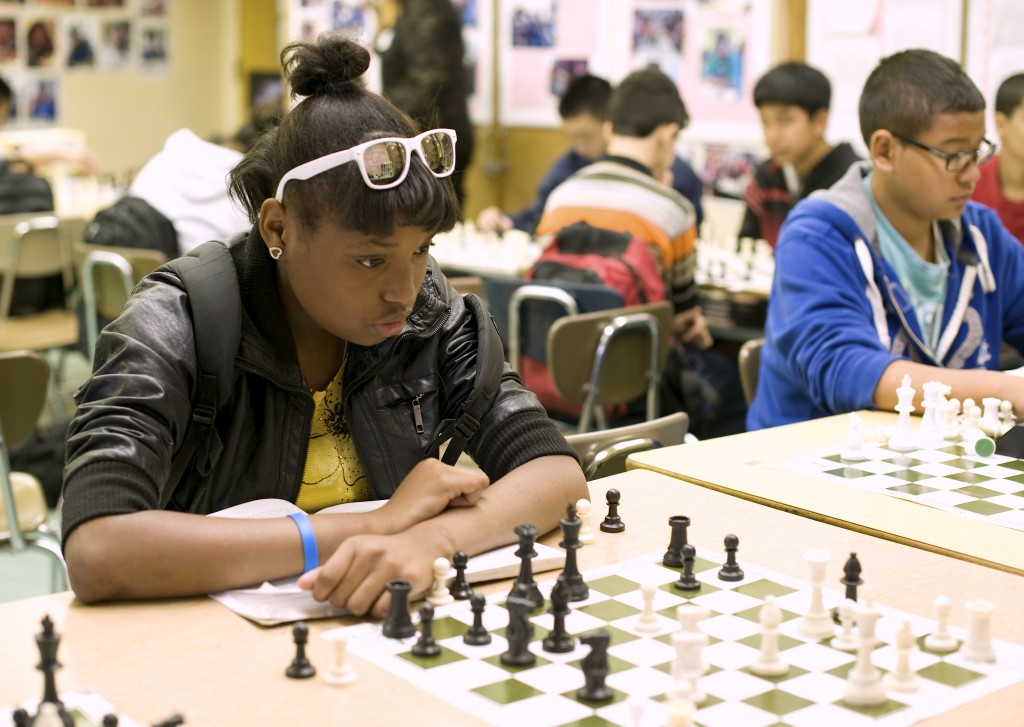
BM: I noticed some things about your teaching style that I really like. You encourage the kids to do their own chess research so that they can be more independent learners and study on their own.
EV: We do have an opening book, so it has all these openings. When I teach openings I make a sort of five page hand-out with all the essential stuff and then we combine it in a binder for all of the kids.
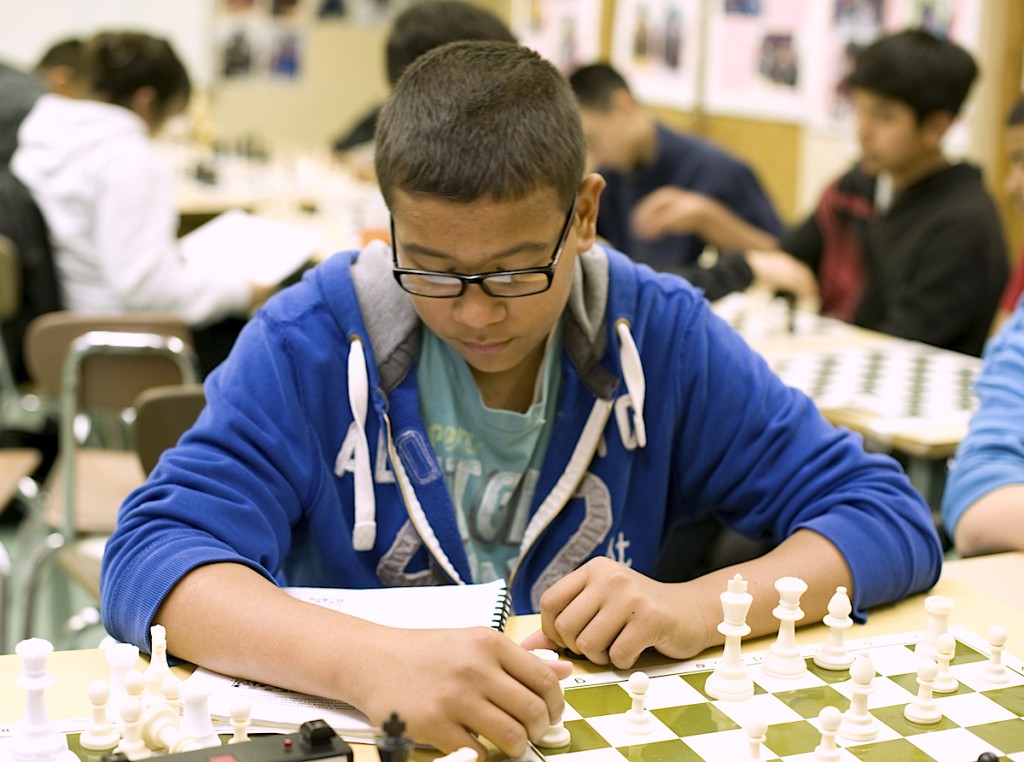
BM: You want to get them to be more curious about learning, which I think is very important.
EV: I think that when you become a real chessplayer you start looking up your own opening questions. Going over your own games and fairly soon you become less dependent on other people and I think that’s better for me and them.
BM: Life skills with chess.
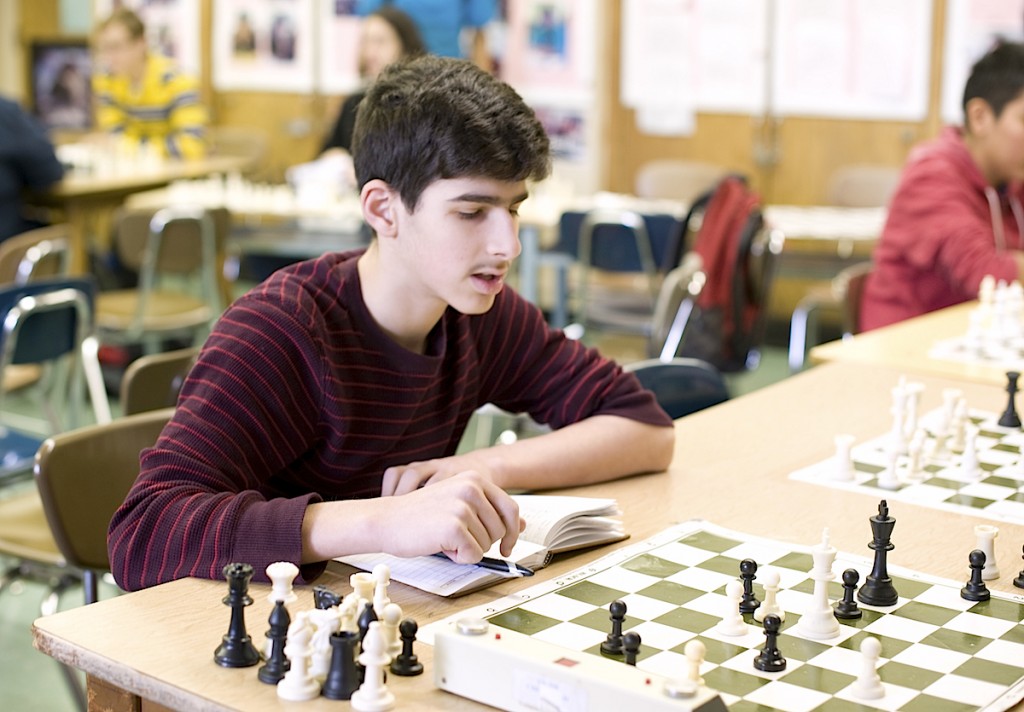
EV: Yeah, they have to learn to teach themselves, really anything. I mean in chess, you learn everything. You teach yourself everything .
BM: What are the goals of the chess program? You must have very clear goals and work very hard to try to accomplish them.
EV: I’m not a goal kind of person. Obviously, it’s beautiful to win National Highschool. You can’t start with a goal because you can’t control children playing chess or whether they win or not. I work as hard as I can and I do the best job I can. But, it’s not like I have any idea when I sit down with a kid, what they’re going to be able to understand or how good their going to get.
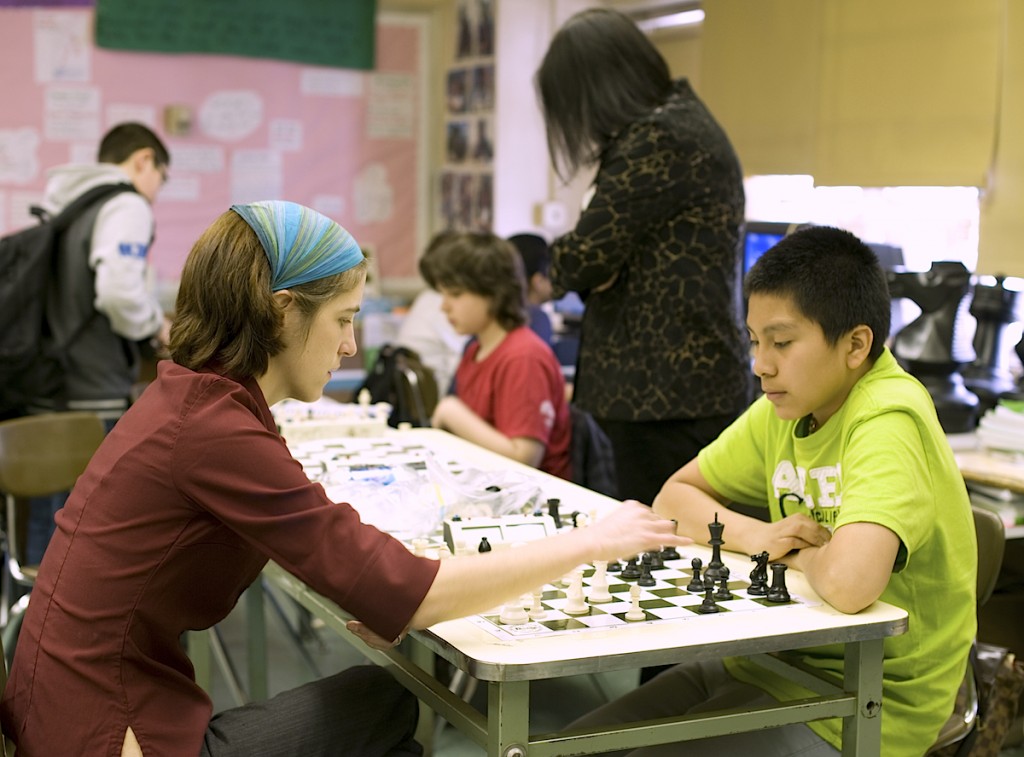
BM: Is it more important for you to give them technical guidance or something else? There are all kinds of teaching styles. Do you think love for the game is more important than performance?
EV: No, I don’t think that loving chess is enough. Loving chess is wonderful, but, as a teacher my job is to be vigorous. Being enthusiastic about something and actually being good at it are different. It’s easy to say, “Oh, it’s fantastic that you love chess!”, and then you don’t spend the time to get them good at it.
BM: Is discipline and structure important?
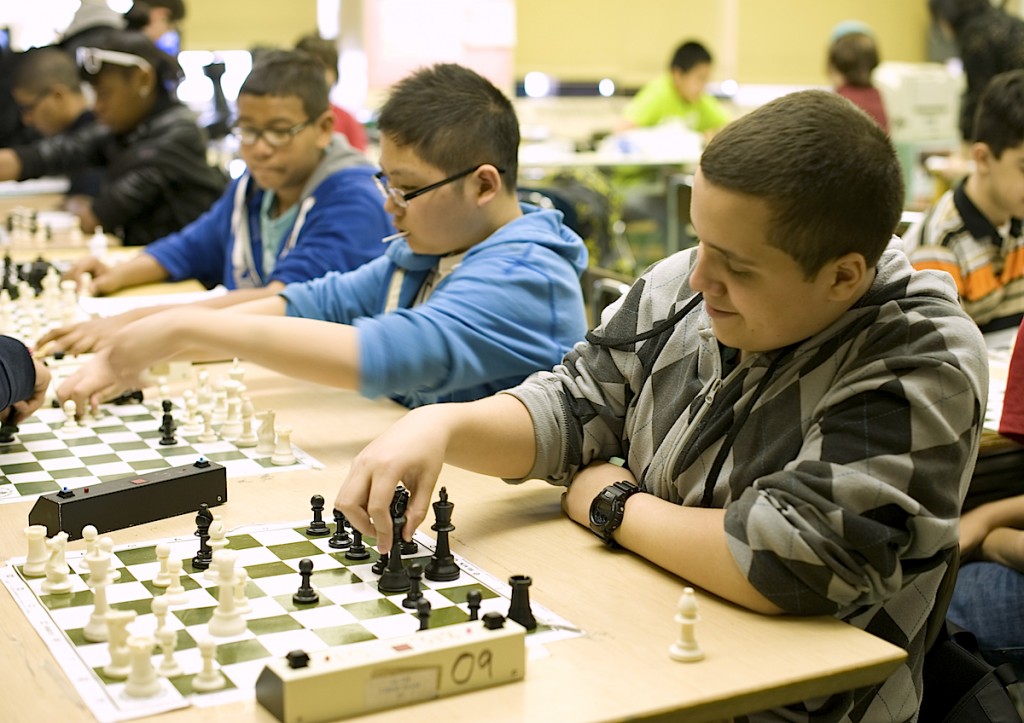
EV: Yeah. Chess taught me how to think about things. I think I learned how to think analytically from chess and that is the main thing I am trying to convey to them. In terms of openings and tactics, I try to be effective, so I take a lot of material from the kid’s games. I try to look at what they need and why they’re losing and fix those problems. I think the most important thing is that I don’t come into the room with a – “I’m going to teach you the Sicilian Dragon or I’m going to show you my games. I think you have to start with where the kids are. Why are they losing? Is it because they play end games badly, or, they’re losing because they don’t know how to make a plan. I think you have to start with them and not start with, “I think tactics are the most important. I think this…”
BM: In your lessons today, I noticed that you encouraged them to learn how to judge a position and based on their understanding, to look for lines.
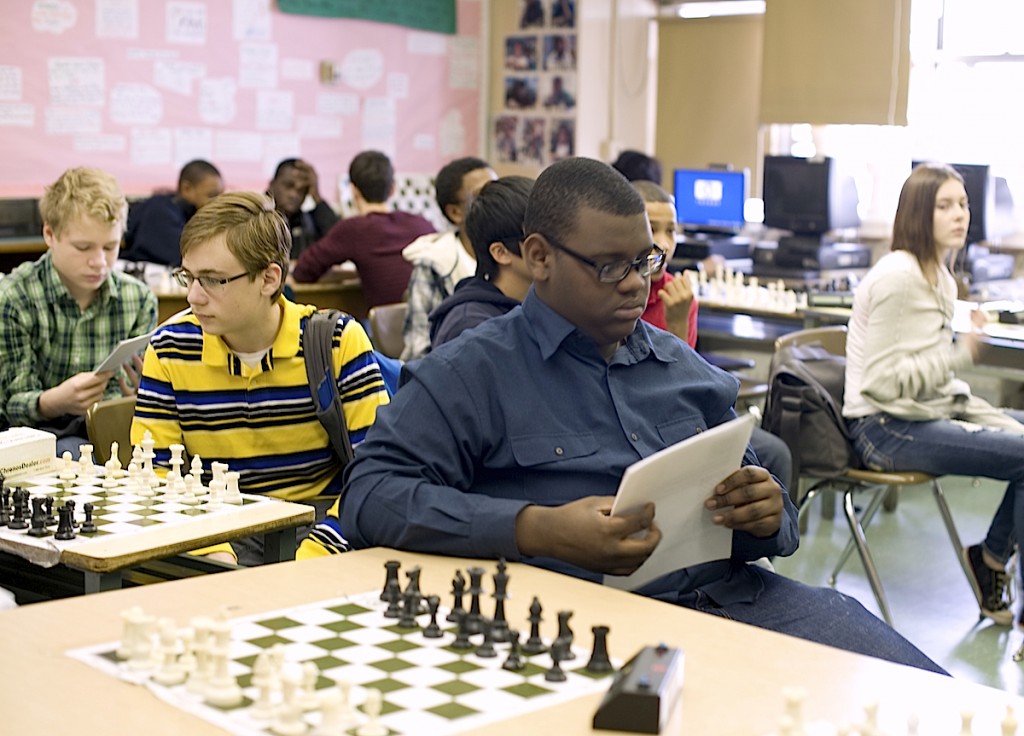
EV: I think it’s important when you’re a good player, that you don’t forget what it’s like to look at a problem and realize, I have no way into that problem, I have nowhere to start. Tactics aren’t random they happen for certain reasons.
BM: Or, they have an open file, or they…
EV: If you don’t know what the tactic is you have to look at the undefended pieces. It’s important to give them a method not just to have them solve problem after problem.
BM: You have a very diverse population here in this school and some of the kids are Title I students. The kids really want to thrive in chess, but, private tutors are not an option. They compete against players in private schools that have more resources. How do you compensate for that, teaching kids who dont have that kind access?

EV: It’s just about the amount of time you work. I mean, I am sure I am not as good a teacher as Joel Benjamin, but…
BM: I disagree. I mean Joel is wonderful but I disagree with that.
EV: But, even if he were better, the point is that my students see me 20 hours because it’s free and his student’s may see him 1 hour. I could be half the teacher he is, but, if I teach them 20 hours, it’s still going to be much better. I mean, I see some of these kids 30 or 35 hours a week. They come to my room whenever their teacher is absent, before school, after school, at lunch. They’ll do 3 hours of chess every day, some of them. They might have early morning with me, class with me during the day, lunch with me, after school with me, every day. A tournament for 10 hours every Saturday, an ICC account and chess homework.
BM: That’s about 30 hours of chess every week?
EV: It’s probably more than that.
BM: For each kid?
EV: Some kids are not that into it. Some kids are in a low class maybe and don’t have me 7 times a week, or don’t come to my classroom at lunch. Some kids may do one hour a week. But, there is definitely a set of kids who are in my classroom whenever they can be and it’s multiple times a day.
BM: Let’s talk about the documentary. How did that come about?
EV: There is a book, “Kings of New York” and in the book there was a chapter about us. The director and producer of the film, Katie Dellamaggiore, read this book and she met the kids and saw what was going on. That year we had some really amazing kids, just huge personalities, people that you meet and they’re 12 and you’re like wow, I’m glad I got to meet this person in my lifetime. I think she sort of felt that all of these kids were amazing and the chess program was great, so she just asked if she could follow us around.
BM: How was she able to fund this project? Did she get a grant?
EV: She got money from a few different places. With Kick-Starter, I think people gave alot of money. But, she funded a lot of it on her own.
BM: I think it’s great that she made this documentary. It is great that chess films are still being made and that they show how children benefit from chess. It’s really wonderful. I applaud the film makers for that. I am really looking forward to seeing the film. So, what is your next step, do you want to continue teaching?
EV: This is my job. I am very happy with it. I mean, it’s lovely that people come and read my articles, but, I love what I do. I hope to do it for the next 20 years. I have no plans to leave. I believe in public education. I believe that what I am doing is much more important than leaving and working in private schools or something like that. I’m here. I will be at work tomorrow at 7 am.
BM: Thank you Elizabeth for your time. As always, it’s a pleasure talking to you. Congratulations for your successes!
